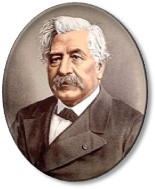Putting the “Holy” Back in Holidays
 First of all … Happy Thanksgiving to all my Canadian friends. The Holidays are upon us! Thanksgiving and then Christmas!
First of all … Happy Thanksgiving to all my Canadian friends. The Holidays are upon us! Thanksgiving and then Christmas!
This time of year, I still picture Fall blazing yellow, orange and red … just before raking mountains of damp slimy leaves beneath the skeletal remains of once beautiful trees. Sorry, just trying to not to get too nostalgic.
With only subtle cues that the seasons are changing, time slips by unnoticed. So … Thanksgiving and Christmas pounce on me unsuspecting again this year. I wonder if the debate is still raging in the States about the public use of “Merry Christmas?” I think it humorous that secularist want to wish us “Happy Holidays” instead. They have obviously overlooked the meaning of the second word. According to Wikipedia (and several other online sources),
The word holiday comes from the Old English word hāligdæg (hālig “holy” + dæg “day”). The word originally referred only to special religious days.”
So, if you’re going to be up North for the holidays, I say run with it and put the Holy back in the Holidays. Can you imagine the conversations?
Cashier: “Happy Holidays!” You: “Thank you for remembering … this is a holy time. All this food is for our family feast celebrating how good God has been to us this year!”
Cashier: “Happy Holidays!” You: They are holy days aren’t they. What could be more holy than commemorating God coming to earth to live among us and save us from our sins. That is worth celebrating!”
Wherever you are for these Holy Days … try to work your faith into conversations. Maybe we’re the ones that forgot how holy the holidays are. Maybe we lost “Merry Christmas” because we were too shy in speaking about Christ.
What Difference Does It Make?
 The past three Sundays have taken us on a tour of Eternity. But what difference does our hope of heaven really make? For that I turn to my friend, mentor and former pastor, Dr. Ken Langley. During his 2016 series on Revelation, when he got to Revelation 21 and 22, he preached a sermon answering that question.
The past three Sundays have taken us on a tour of Eternity. But what difference does our hope of heaven really make? For that I turn to my friend, mentor and former pastor, Dr. Ken Langley. During his 2016 series on Revelation, when he got to Revelation 21 and 22, he preached a sermon answering that question.
He began his message by wondering aloud why the Church in our day talks so little of Heaven. He says, “Other generations of the Church viewed earth as heaven’s womb … viewed earth as dress rehearsal for heaven. Heaven is what gave earth and its life meaning, purpose and a sense of direction. Maybe these days we’re just too enamored with the world to care much about the subject. What difference does it make?” He answers the question with four reasons:
Heaven Comforts Those Who Grieve (1 Thess. 4:13-18). Heaven Crowns Faithful Service: The Bible speaks several times of crowns received by those who believe in and faithfully serve Christ … a Crown of Life (James 1:12), a Crown of Rejoicing (Isaiah 35:10 and 51:11), a Crown of Righteousness (2 Timothy 4:8), a Crown of Glory (1 Peter 5:4) and a Victor’s Crown (2 Timothy 2:5 and Revelation 2:10). Although Matthew 25:31-40 does not use the language of crown, faithful servants are greeted by the King of Kings with these words of reward and welcome, “‘Come, you who are blessed by my Father; take your inheritance, the kingdom prepared for you since the creation of the world.”
Pastor Ken points out that earlier in the same passage, Jesus seems to imply that “the reward for good work is more work.” While many picture Eternity as an endless vacation filled with our best-loved hobbies, the Bible paints a more rewarding picture. Revelation speaks of reigning with Christ and serving in the New Jerusalem. Revelation 21:25-26 includes these intriguing words about the New Jerusalem, “the kings of the earth will bring their splendor into it … The glory and honor of the nations will be brought into it.” Here’s the third “C” from Pastor Ken’s outline …Heaven Continues Our Best Work. Pastor Ken, who is one of the most diligent workers I know said, “I don’t want to be a couch potato or a cloud potato … give me some worthy work!”
The final reason Heaven matters is a hope I return to often … Heaven Compensates for Suffering in this Life. For this, Pastor Ken turned to Romans 8:18, “I consider that our present sufferings are not worth comparing with the glory that will be revealed in us.” (See also, 2 Corinthians 4:16-17).
Psalms from Facebook
God’s Word commands Christians to … Speak to one another with psalms, hymns and spiritual songs. According to Ephesians 5:19 these conversations are to be the overflow of a thankful hearts filled with songs to the Lord. Our inner dialog is so filled with love, gratitude and awe for God that it naturally colors all our speech. At least that’s the way it’s supposed to be.
I think we face two challenges: 1) we are as a society schooled and encouraged in the art of grumbling. We need to discipline our inner dialog to line up with God’s expectation and not the world’s. Our public interactions will never be characterized by praise and gratitude until our hearts are filled with those qualities. 2) If we don’t understand the call we’re not apt to answer it. Until I dug into this passage it sounded so unnatural that I wasn’t sure how to make it part of my life. Forsooth, how doth I speaketh to thee in a Psalm? It’s simpler than it sounds … and we’re probably already doing it. A psalm is simply, “A story of God’s deliverance or a commemoration of His mercies received.” Here’s a great example from a friend of mine whose been battling cancer. Enjoy this story from Kim and the application.
 ” This is the phone that a Kindergarten teacher, that I have the pleasure to work with, brought in several days ago. It’s a tattle phone. The kids take their misunderstandings, infractions, and worries and pick up the phone to supposedly record a message for the teacher to listen to later. Of course by the time the “later” has arrived the problem has ceased to be a problem and often they have moved on to play with new friends or even the one they had the original problem with. Oh to be 5 again! 😊 ”
” This is the phone that a Kindergarten teacher, that I have the pleasure to work with, brought in several days ago. It’s a tattle phone. The kids take their misunderstandings, infractions, and worries and pick up the phone to supposedly record a message for the teacher to listen to later. Of course by the time the “later” has arrived the problem has ceased to be a problem and often they have moved on to play with new friends or even the one they had the original problem with. Oh to be 5 again! 😊 ”
Deafening Pride
 On my way through Las Bougainvilleas neighborhood in Coronado, I noticed Calle De Lesseps. I don’t know if it was meant to be a joke, but the road is a very short cul-de-sac. It accesses all of three homes.
On my way through Las Bougainvilleas neighborhood in Coronado, I noticed Calle De Lesseps. I don’t know if it was meant to be a joke, but the road is a very short cul-de-sac. It accesses all of three homes.
If you’re not familiar with Canal history, Ferdinand de Lesseps was the French diplomat and developer who began … but could not finish the Panama Canal. He dug a very short cul-de-sac of a ditch that destroyed fortunes and buried 20,000 Frenchmen.
This astonishing failure of such a national hero shocked all of France, especially de Lesseps himself. He was a giant to the public and considered himself an unstoppable force.
He had already done what the world said could not be done by constructing the Suez Canal. The much shorter trade route between Europe and East Asia opened in 1869, ahead of schedule and below budget. But the very success that drove de Lesseps towards greater things was also his undoing.
David McCullough in, The Path Between the Seas, paints a picture of Ferdinand as a man deafened by pride. He consulted the world’s best engineers (Eiffel for one) and then discarded their advice to use a system of locks. De Lesseps mantra became, “A sea level canal or no canal at all.” It turned out to be a self-fulfilling prophecy. For Ferdinand there would be no canal, only failure and infamy.
King Rehoboam, faltered at the beginning of his reign, but found success when he followed the Lord. But that success went to his head. 2 Chronicles 12:1 records, “After Rehoboam’s position as king was established and he had become strong, he and all Israel with him abandoned the law of the LORD.”
King Hezekiah, one of Judah’s best rulers, also succumbed to pride. “In those days Hezekiah became ill and was at the point of death. He prayed to the Lord, who answered him and gave him a miraculous sign. But Hezekiah’s heart was proud and he did not respond to the kindness shown him; therefore the Lord’s wrath was on him and on Judah and Jerusalem.” 2 Chronicles 32:24-26
The Holy Bible: New International Version. (1984). (2 Ch 12:1). Grand Rapids, MI: Zondervan.
A Priori
 Current genetic research traces all men and women currently living on the planet back to one male and one female ancestor. And yet … many scientists scoff at the Biblical narrative concerning God’s creation of Adam and Eve. I ended last week by asking, “Do scientists who reject the Biblical narrative do so based solely on “evidence” or is there an a priori reason.”
Current genetic research traces all men and women currently living on the planet back to one male and one female ancestor. And yet … many scientists scoff at the Biblical narrative concerning God’s creation of Adam and Eve. I ended last week by asking, “Do scientists who reject the Biblical narrative do so based solely on “evidence” or is there an a priori reason.”
If you’re not familiar with the term “a priori” it’s Latin and literally means, “from what comes before.” It is knowledge or belief that comes apart from experience or tangible evidence. It is derived solely through deduction, rather than experience or hard data. Here’s how a priori reasoning might predispose a person to embrace atheistic or evolutionary dogma.
- If there is a creator (God) there might be an objective standard of truth.
- If there is an objective standard of truth my actions may be judged according to that standard.
- That possibility is too morally confining or too frightening … therefore,
- There is no creator (God).
Once this line of reasoning is present in a person’s thinking (even subconsciously), it makes it nearly impossible to see evidence of design or purpose as evidence for God. In fact, design and purpose are technically impossible in the atheistic evolutionary worldview. Evolutionists proclaim the case is closed on the Creator. But for many, the case was decided outside of the laboratory or the fossil bed … it was decided in their heart. Some are honest enough to out their own deductive bias. In one article clearly antagonistic to Christianity, the author exposed one of his a prior reasons for being an evolutionist, “I, for one, refuse to believe that I am just a primate born inherently sinful.” The problem he refuses to see is the problem that blinds him to truth.

